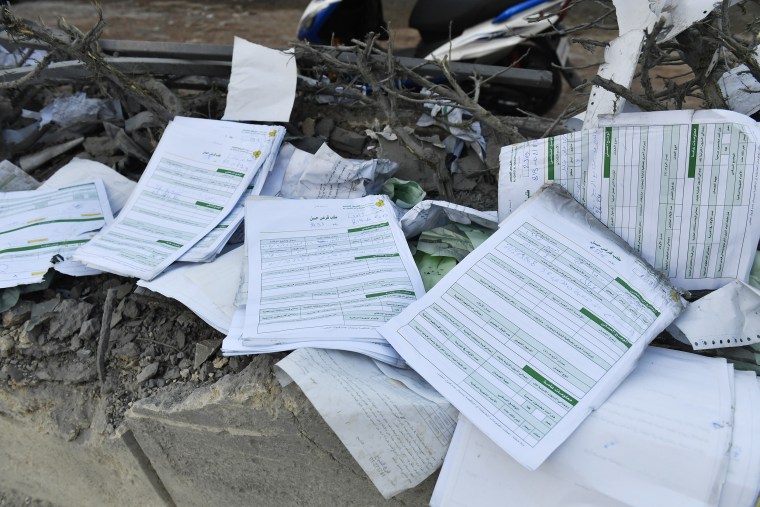U.N. Special Coordinator for Lebanon Jeanine Hennis described “widespread panic” across the country after the evacuation orders. In a post Sunday on X, she said there was only a “brief window to escape to safety” before “intense blasts” hit.
Beirut resident Wafaa Ezeldinne told NBC News, “I can’t describe the panic.”
“Everybody was on the streets,” she said after she fled her home before she returned hours later. “Even displaced people left locations that were close to Al-Qard Al-Hasan. Streets at night were jammed with cars, people.”
Ranim Halawani, who works with the Development for People and Nature Association, or DPNA, in the coastal town of Saida, said she and others also fled their homes after they heard about the evacuation orders. In the end, she said, “we didn’t have an attack in Saida, but people were afraid, and they left.” She said many had returned to their homes.

Al-Qard Al-Hasan, or AQAH, has been under U.S. sanctions since 2007, with the Treasury Department describing it as being used by Hezbollah “as a cover to manage the terrorist group’s financial activities” and to “gain access to the international financial system.”
Since then, Treasury officials have continued to accuse Hezbollah of using the bank to “abuse the Lebanese financial sector and drain Lebanon’s financial resources at an already dire time” in a country grappling with protracted economic and political crises.
Al-Qard Al-Hasan, which translates to “the good loan,” has more than 30 branches across Lebanon, according to local media, many based in the Shiite-majority southern suburbs of Beirut and at least some appearing to have been connected to residential buildings.
Israel’s strikes on the bank marked an expansion of its war against Hezbollah beyond what the IDF has described as targeting the group’s military sites.
The IDF said Monday that Israeli soldiers also continued to launch ground raids into southern Lebanon and had dismantled “large quantities of Hezbollah’s weapons” while also killing Hezbollah members, including “tactical-level commanders.”
At least 2,464 people, including 127 children, have been killed in Lebanon since hostilities between Israel and Hezbollah began to escalate last year following Hamas’ Oct. 7 terrorist attack, according to the Lebanese health ministry, while an estimated 1.2 million people have been displaced from their homes.
In an interview with the Saudi state news channel Al Arabiya on Monday, Lebanese Prime Minister Najib Mikati said that he believed there would be “no solution except through diplomacy” to end fighting in the region but that he’d had no direct contact with Hezbollah since the middle of last month.
Israeli military making life ‘impossible’ in northern Gaza, U.N. says
Meanwhile, Israeli forces continued a deadly offensive in northern Gaza, where dozens of people were killed over the weekend in Israeli airstrikes in the areas of Beit Lahia and the nearby Jabalia refugee camp, according to local health officials.
The IDF said Monday that troops had killed militants and continued to dismantle militant infrastructure and tunnel shafts in the area of the Jabalia refugee camp over the past day. The military said troops were also operating across southern and central Gaza.






